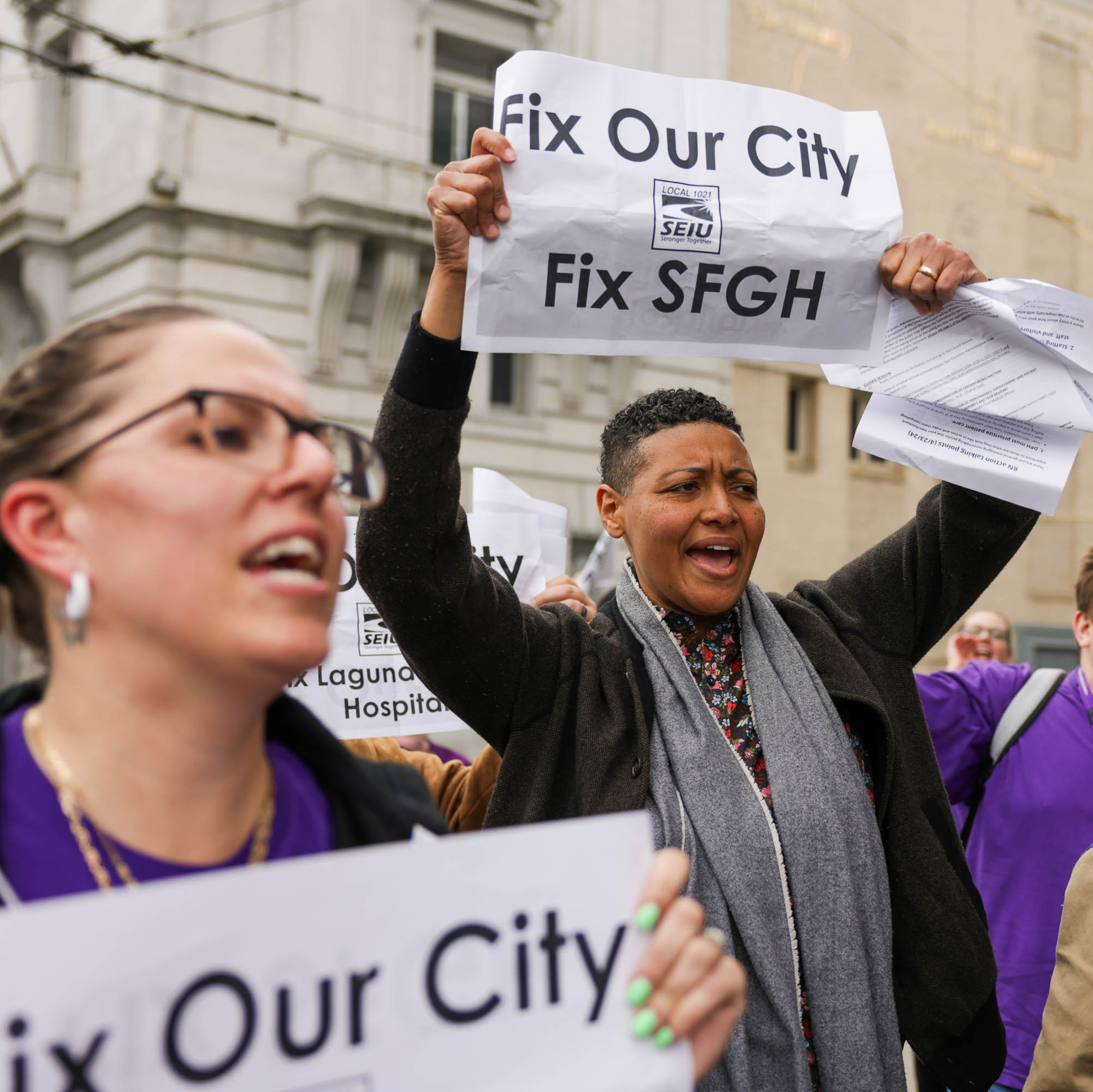A relatively under-the-radar proposition on the November ballot could have huge consequences for the quality of health care in San Francisco, city nurses say.
Proposition I would beef up retirement benefits for over 1,000 nurses in the city, allowing workers to bank time spent as a per diem nurse toward their pension. The ballot measure would offer similar changes for 911 dispatchers, with the hope that the incentive will retain city workers. It needs a simple majority to pass.
“It is a small measure that goes a really long way,” said Brittany Hewett, a per diem nurse at Zuckerberg San Francisco General Hospital who works with the elderly.
Early results Tuesday night showed voters passing the measure with an overwhelming majority.
Because so many nurses and other frontline health care workers consider their job a calling, burnout is widespread — and without more incentives to retain them, Prop. I proponents say, turnover will continue to drive staffing shortages.
“You can work yourself to death,” Hewett said. “And there are still going to be people who need help. It is really challenging.”

The proposition was introduced by city Supervisor Ahsha Safaí — who is also running for mayor — and the city’s healthcare unions poured hundreds of thousands of dollars into the measure to see it passed.
San Francisco’s health and emergency systems have struggled to keep pace since the pandemic, Prop. I backers say. Proponents say the city’s nurses are exhausted and leaving for private hospitals. They also contend that the staffing shortage is putting them in harm’s way. Last spring, nurses testified before the city’s Health Commission about an uptick in physical and verbal assault. One nurse said a patient spat on her, and others told stories about skipping meal breaks.
Jennifer Esteen, a psychiatric nurse, said the staff turnover puts a considerable financial burden on the city and degrades the quality of medical care.
“The patients we serve need continuity of care,” Esteen said, “and a solid and stable workforce. Prop. I helps shift from a temporary workforce to a permanent workforce.”
The city’s 911 dispatchers are dealing with the same issues, proponents say, claiming that a 20% staffing shortfall is forcing dispatchers to work up to 18-hour shifts to cover the gaps.
There are currently 1,400 per diem nurses eligible for the benefits change, according to a 2023 estimate from the city controller’s office. The office found the measure would similarly impact about 175 emergency dispatchers. Controller Greg Wagner estimates (opens in new tab) that Prop. I would cost the city between $3.8 and $6.7 million annually to start and progressively increase year to year.
No significant opposition surfaced against the measure. Safaí managed to get it on the ballot with unanimous support from his colleagues on the Board of Supervisors. Unions threw over $850,000 toward the proposition, including $400,000 from the Service Employees International Union 1021, which represents the city’s nurses.
Prop. I was one of several retirement-related measures on the ballot.
Prop. F, introduced by Supervisor Matt Dorsey, would postpone retirement for police officers while offering sizable incentives. Then there’s Prop. H, which would lower the retirement age for firefighters to receive the maximum pension benefits and was introduced by Supervisor Catherine Stefani. The latter two have raised concerns about cost and about whether people could game the system and undermine the ostensible aim of fixing staffing shortages.
